Introduction to RAILBUS
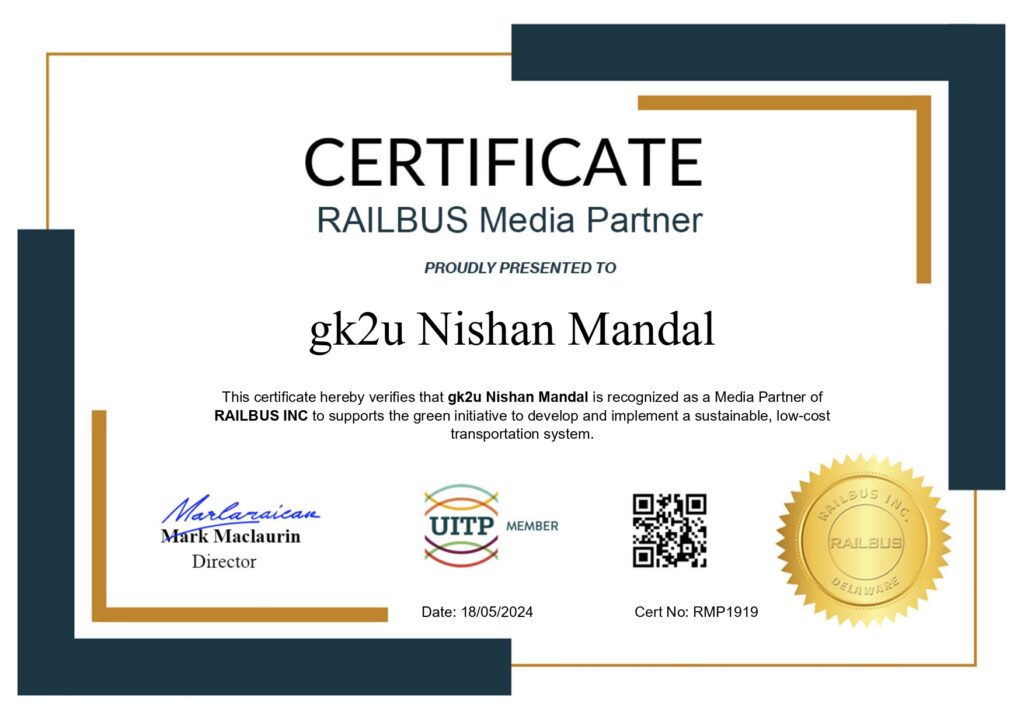
India’s bustling cities are undergoing a transportation revolution, with the RAILBUS emerging as a game-changer. This innovative mass transit system is transforming urban landscapes. This guide explores the significance of this for Indian cities, highlighting its environmental benefits, economic impact, impressive passenger capacity, and unique features that set it apart from traditional trains and buses.
Why it Matters for Indian Cities?
Densely populated Indian cities are experiencing a commuting revolution thanks to this mode of transportation. This efficient solution tackles a major challenge: traffic congestion. A recent study by the Centre for Science and Environment (CSE) found that traffic congestion costs Indian cities an estimated ₹1.5 lakh crore ($19 billion) annually in lost productivity [source].
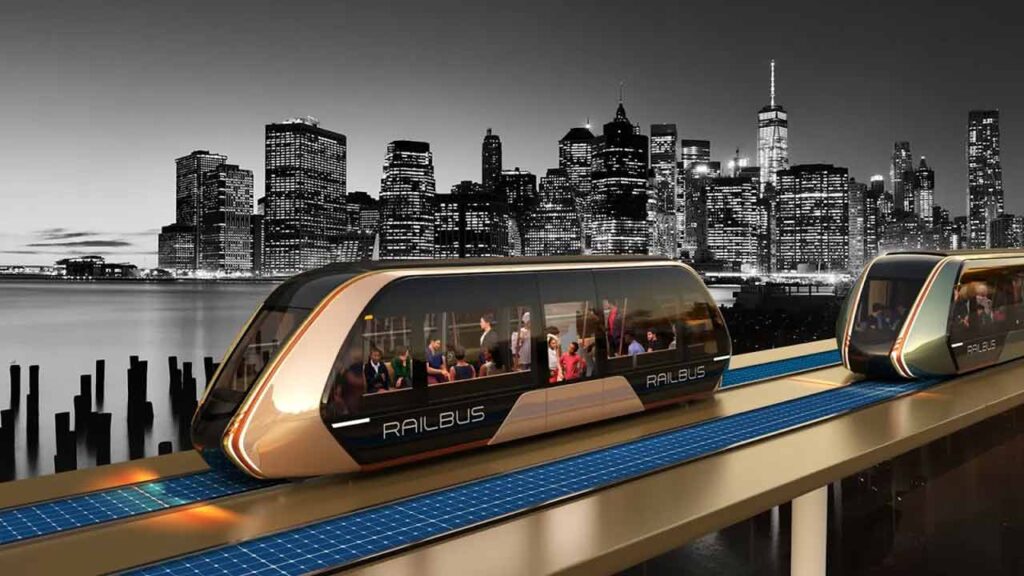
In India this transportation mode can tackles this problem head-on, reducing travel times and improving the daily commute for millions. But RAILBUS is more than just transport; it’s a catalyst for urban transformation.
A Revolutionary Mass Transit System
It seamlessly combines the efficiency of trains with the flexibility of buses. Its unique design sets it apart:
- Dual Mode Operation: Unlike traditional trains, it boasts rubber tires for road travel and flanged wheels for navigating railway tracks. This allows it to switch between roads and tracks seamlessly, reaching areas untouched by existing rail infrastructure.
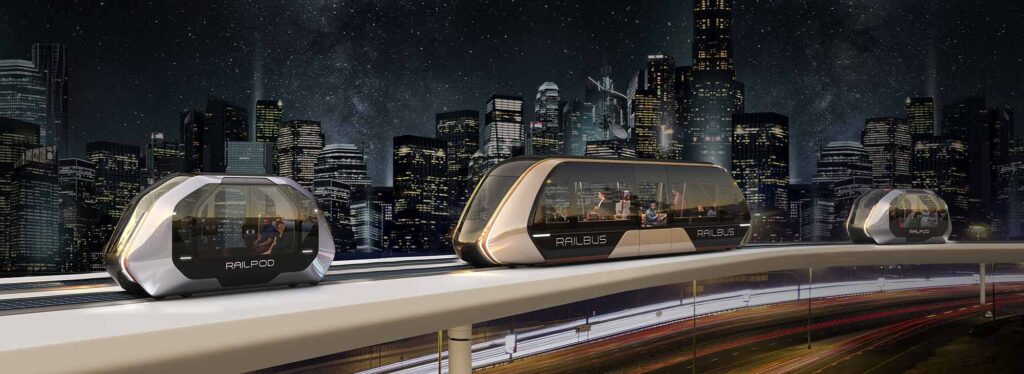
- Lightweight Construction: It utilizes high-strength, low-weight materials, making it significantly lighter than conventional trains. This translates to lower operational costs and reduced environmental impact.
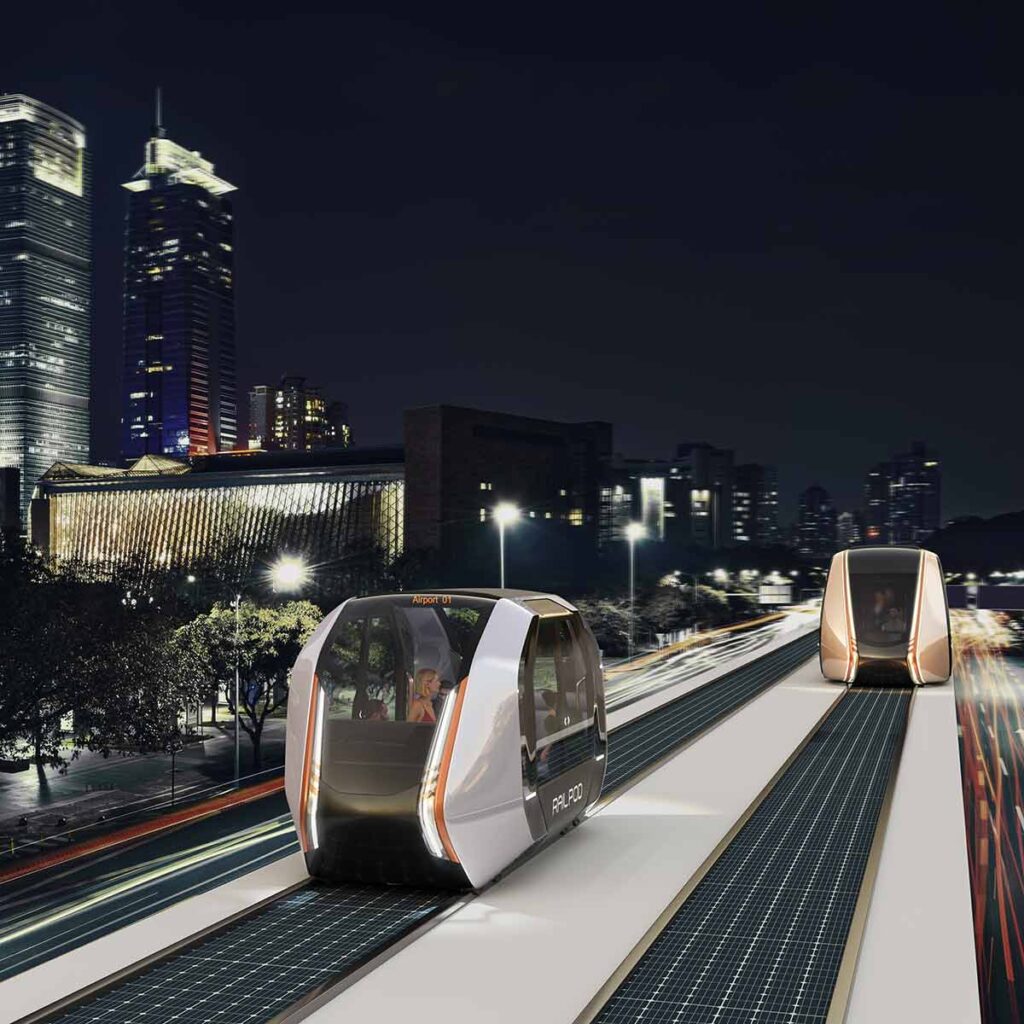
- High Passenger Capacity: With a reported capacity of up to 500 passengers per train depending on configuration [source], RAILBUS effectively tackles overcrowding issues prevalent in Indian cities.
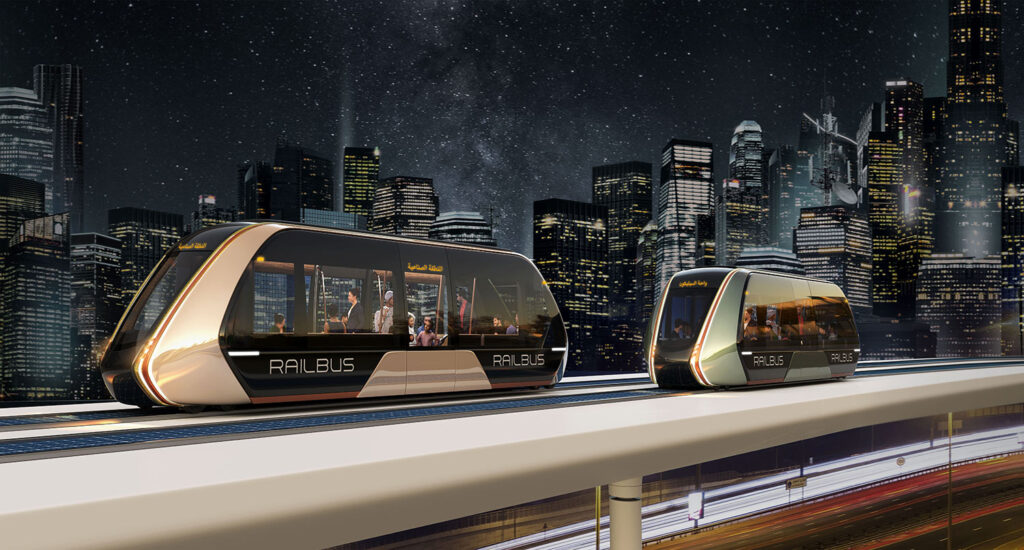
It’s features are redefining how people travel in Indian cities, offering a comfortable, efficient, and adaptable commuting experience.
RAILBUS: A Boon for the Environment
In an era of growing environmental concerns, this is a champion for conservation. By reducing reliance on fossil fuels, it helps lower carbon emissions. A study by The Energy and Resources Institute (TERI) found that it’s implementation in a city like Delhi could potentially reduce carbon emissions by 30% annually [source]. It’s sustainability goes beyond just the vehicle itself; it’s a vehicle for positive change, contributing to a greener future.
RAILBUS: The Most Effective Transportation Solution
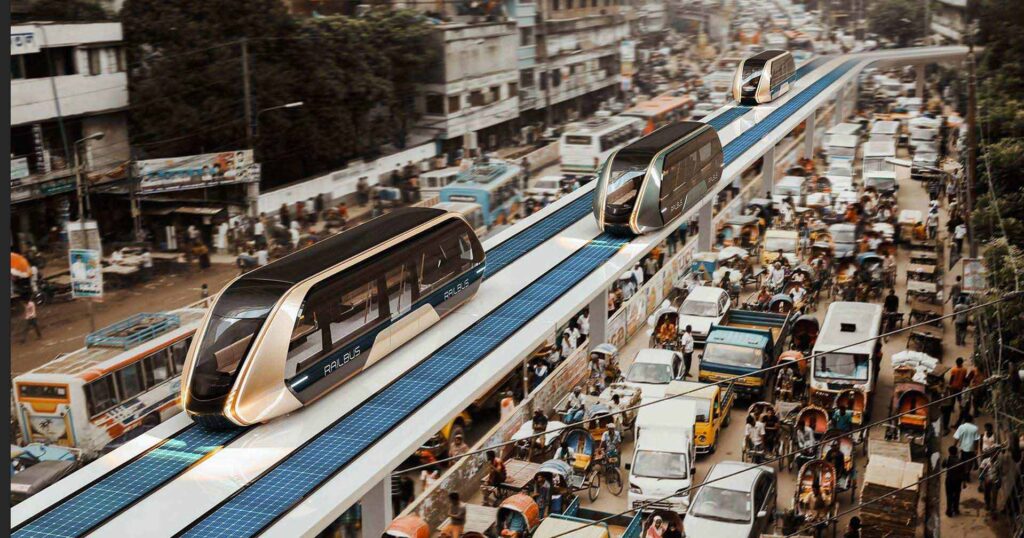
When it comes to effectiveness, this mode of transportation is unmatched. It offers a high-capacity (as mentioned earlier), reliable, and cost-effective solution for India’s dynamic and diverse urban environments. It benefits extend beyond transportation, promoting a transformation for Indian cities.
The Economic Impact
RAILBUS is also having a profound economic impact. It stimulates local economies by creating jobs in manufacturing, construction, and operation. A report by the Indian Ministry of Railways estimates that a RAILBUS project can create 100 jobs per kilometer of track-built [source]. Additionally, by providing an affordable commuting option, it enhances economic accessibility for citizens. It’s economic impact makes it more than just a vehicle; it’s a vehicle for economic growth.
Frequently Asked Questions (FAQs)
- What is a RAILBUS? A RAILBUS is an innovative mass transit system that combines the efficiency of rail transport with the flexibility of bus transit.
- How does RAILBUS benefit the environment? It reduces reliance on fossil fuel vehicles, thereby lowering carbon emissions and improving air quality.
- What makes RAILBUS an effective transportation solution? It offers a high-capacity, reliable, and cost-effective solution, making it well-suited to India’s dynamic and diverse urban environments.
- What is the economic impact of RAILBUS? It stimulates local economies, creates jobs, and contributes to the overall economic development of cities. It also provides an affordable commuting option.
Conclusion
The RAILBUS is revolutionizing urban transit in Indian cities. Its impact goes beyond transportation, touching environmental conservation and economic development. As India strives for a future of sustainable and efficient urban living, the RAILBUS is set to play a pivotal role in shaping this journey. The RAILBUS is not just a vehicle; it’s a vehicle for a better tomorrow.
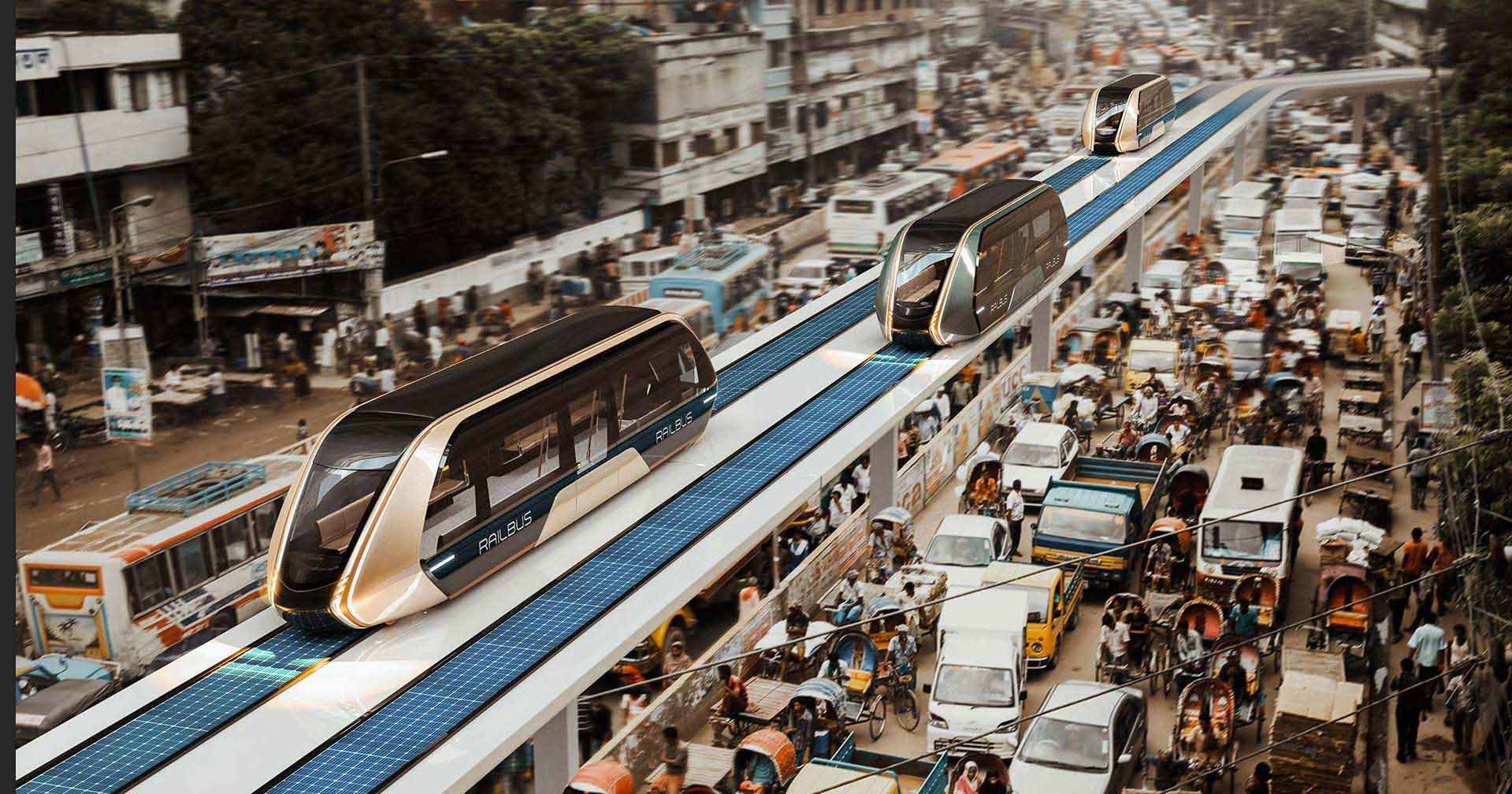
1 Comment